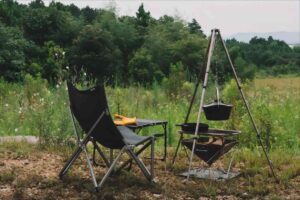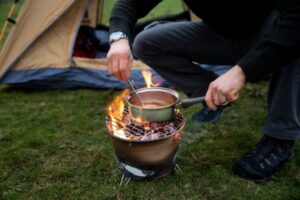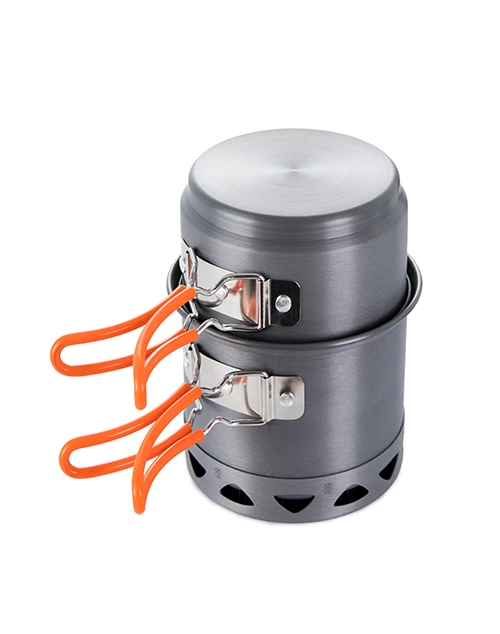What is Camping Adventure?
Share:
 In modern society, everyone, whether individuals, families, friends, or organizations, seeks ways to escape from the daily grind for leisure and relaxation. There are several rejuvenation choices accessible, depending on one’s budget, goal, group size, time availability, and so on. Camping adventure is a popular rejuvenating activity that is accessible to people of all ages. Camping encompasses a variety of activities and methods of outdoor accommodation.
In modern society, everyone, whether individuals, families, friends, or organizations, seeks ways to escape from the daily grind for leisure and relaxation. There are several rejuvenation choices accessible, depending on one’s budget, goal, group size, time availability, and so on. Camping adventure is a popular rejuvenating activity that is accessible to people of all ages. Camping encompasses a variety of activities and methods of outdoor accommodation.
What is Camping Adventure
Camping adventure is a leisure activity that is typically done in groups. Camping trips can be organized by families, friends, or even an organization as part of a team vacation. Camping is an outdoor activity that involves staying away from home overnight in a shelter, such as a tent or a recreational vehicle. Typically, individuals leave developed regions to spend time outside in more natural settings, pursuing activities that they love. In popular language, a camping vacation entails roughing it in tents while at the mercy of Mother Nature.
Camping can be combined with hiking/trekking, fishing, white-water rafting, and kayaking to provide the ideal outdoor experience. It can be pursued alone, although it is most commonly done with friends, family, or coworkers. It is an excellent recreational activity that may be enjoyed by people of all ages. Camping is also a convenient option for people visiting music festivals or sporting events. Camping is frequently conducted by many companies as part of a team excursion for relaxation, and team building, or as employee rewards to inspire them and promote a healthy working environment.
Camping is one of the most cost-effective ways to organize an outdoor adventure. Not only that, but one is closer to nature from the minute one wakes up till one fall asleep, usually after a warm bonfire and delicious cuisine. Camping has been shown to reduce stress and improve both mental and physical health. Who wouldn’t want to camp when it provides the opportunity to be immersed in nature with simple access and more time to explore? Nowadays, an increasing number of individuals are interested in camping in all of its forms, from backcountry to adventure camping and glamping.
History of Camping
Camping as a leisure hobby gained popularity among elites in the early twentieth century. It gradually gained appeal among different socioeconomic classes. Modern campers visit public natural resources including national and state parks, wilderness areas, and commercial campsites. It is clear why camping has gained such popularity over the centuries: leaving contemporary civilization and its stresses behind to rest in the unchangeable ambiance of nature, which is a lifetime goal for many people. With the ability to immerse oneself in the natural beauty of the land, the activity is ideally suited to achieve extraordinary levels of domination.
Types of Camping
Depending on your preferences, purpose and comforts, the most popular variants of camping in India may be categorized as under: –
- Tent Camping: Tent camping involves selecting a suitable campground, setting up your tent, and staying there for one or more nights.
- Backpacking Camping: Backpacking camping involves carrying supplies and a lightweight tent, sleeping in a tent or hammock, and moving on the next day.
- Glamping: Glamping refers to camping with more opulent accommodations and services than typical camping, such as resorts.
- Survivalist Camping: Survivalist camping involves learning survival techniques for various outdoor scenarios.
- Canoe / Kayak Camping: Similar to backpacking, but with the added freedom and benefits of water travel.
- RV & Van Camping: RV and van camping offers the conveniences of home while exploring outdoor areas.
Advantages of Camping
Camping, a recreational alternative open to both young and old people, offers several advantages, which are described below: –
- Stress Reduction: Nature provides a unique opportunity for stress reduction and relaxation, benefiting individuals, families, and friends alike. It also motivates employees to perform better.
- Fresh Air: Fresh air in nature rejuvenates and promotes health, making it a welcome alternative to metropolitan life.
- Relationship Building: Camping fosters and strengthens relationships with friends, family, coworkers, and employers.
- Physical Fitness: Camping requires physical exercise, which improves health significantly.
- Connection with Nature: Camping offers a unique opportunity to connect with nature, interact with wildlife, and enjoy stargazing away from city lights.
- Builds Team Spirit: Camping fosters strong team spirit by teaching coworkers that assisting one another is the only way to move forward
Disadvantages of Camping
Camping is one of the most popular recreational activities for people, families, and businesses, and it surely has many benefits, but there are also some drawbacks. These are listed below. –
- Expensive Equipment: Proper clothes, water containers, and non-perishable food items are necessary for a successful camping trip, but may demand an initial expenditure.
- Distance from Medical Facilities: Camping places are often distant from medical facilities, potentially prolonging illness and suffering.
- Sunburn: Camping often involves spending time outdoors, which can increase the risk of sunburn.
- No Bathroom: Camping usually is without a bathroom or a shower facility, and bathroom in the woods and the waste can actually attract animals and other scavengers
ODM service
Looking for reliable wholesale outdoor equipment? At Deermaple, we specialize in ODM service, offering high-quality, innovative outdoor gear tailored to your needs.
If you are interested in outdoor gear wholesale, please contact us.
Disclaimer: This blog may contain user comments, opinions, and other user-generated content. We are not responsible for the accuracy, reliability, or opinions of user-generated content. User-generated content represents the opinions of the individual authors only and does not reflect the views of this website.
Edwary
Related Posts
Related Products
No products found.









